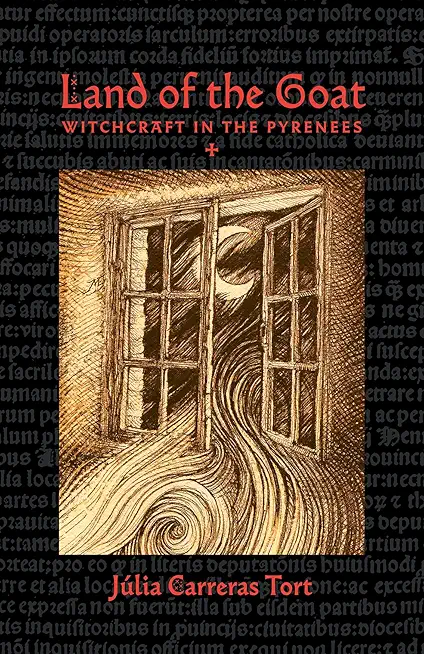
description
a locus unique, characterized by a rugged landscape, extremes in climate, and isolated villages. A stronghold of independence, the area has long sheltered a rich tapestry of folk customs and magical belief, and served as a refuge for heretical sects of the Middle Ages. It was here, in 1424, that the first secular laws against witchcraft were passed. It was also the birthplace of the unique figure of the bruxa or Primordial Witch, a supernatural figure which could communicate with spirits, cast spells, control weather, and serve as the Devil's consort. Drawing upon Inquisition records, as well as local history, folklore, and magical practices, the Land of the Goat explores the nature of the Pyrenean witch and the evolution of its character and craft over time. Its subjects include the Spirit-Double, veneficium (the use of poisons), and the witches' nocturnal flight to the phantasmagoric Lande de Boc or 'Land of the Goat'. Also examined is the animistic substrate of ancient goddesses and spirits of the nocturnal realm, such as the Basque Mari who, like Diana, was associated with the sky-roving Night Host. The unique forms of the Pyrenean Devil, pre-dating the Christian Satan, are also investigated; chief among these was Akerbeltz, the Black He-Goat, closely associated with Pyrenean shepherds and bearing the powers of death and fertility. The Land of the Goat documents not only the history of the Pyrenean witch, but also its status as liminal to humanity, and as a perennial emanation of the land itself. Held in balance to folk custom, popular magic, and the twin adversaries of Christianity and Rationalism, the legacy of the bruxa has endured in many aspects of local folklore.--Three Hands Press "Publisher"
member goods
No member items were found under this heading.
listens & views

BEETHOVEN'S WIG 2: MORE SING-ALONG ...
by BEETHOVEN'S WIG 2: MORE SING-ALONG SYMPHONIES / VA
COMPACT DISCout of stock
$10.75
Return Policy
All sales are final
Shipping
No special shipping considerations available.
Shipping fees determined at checkout.






